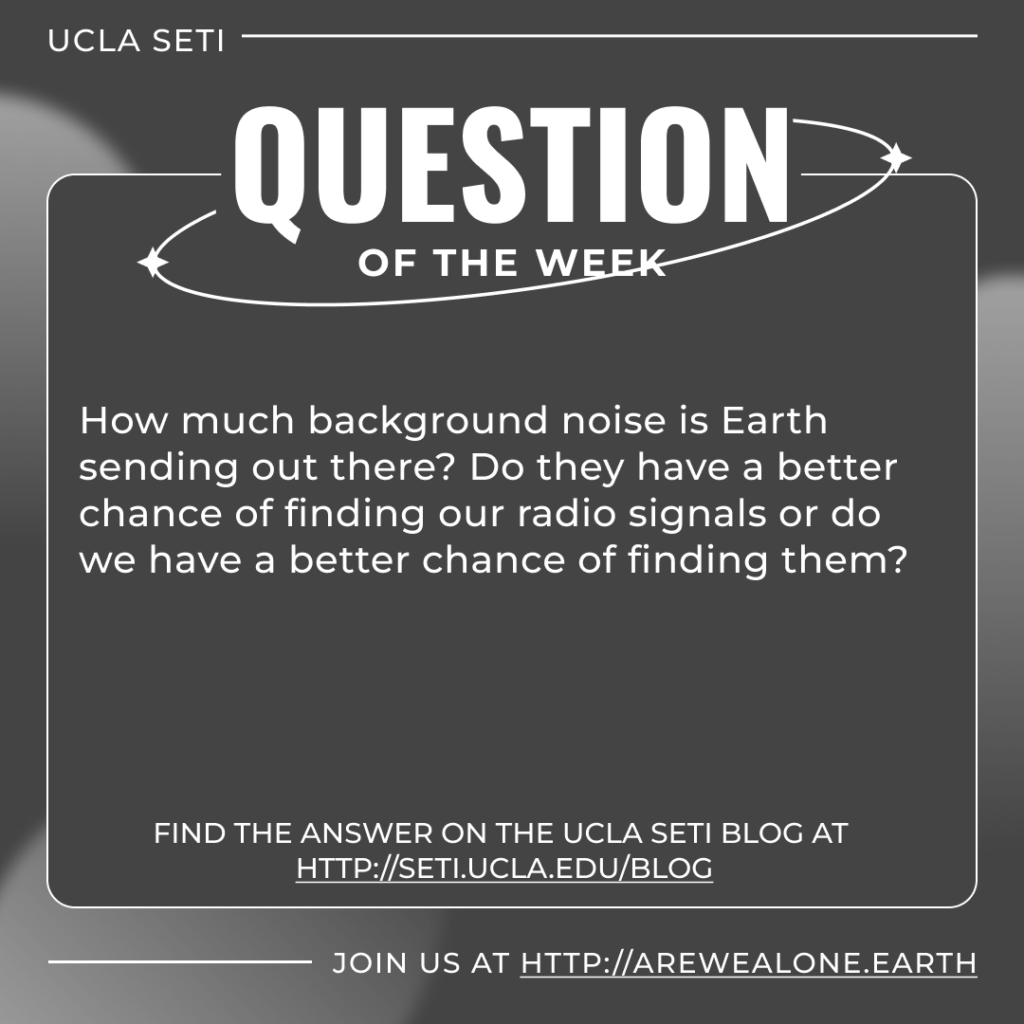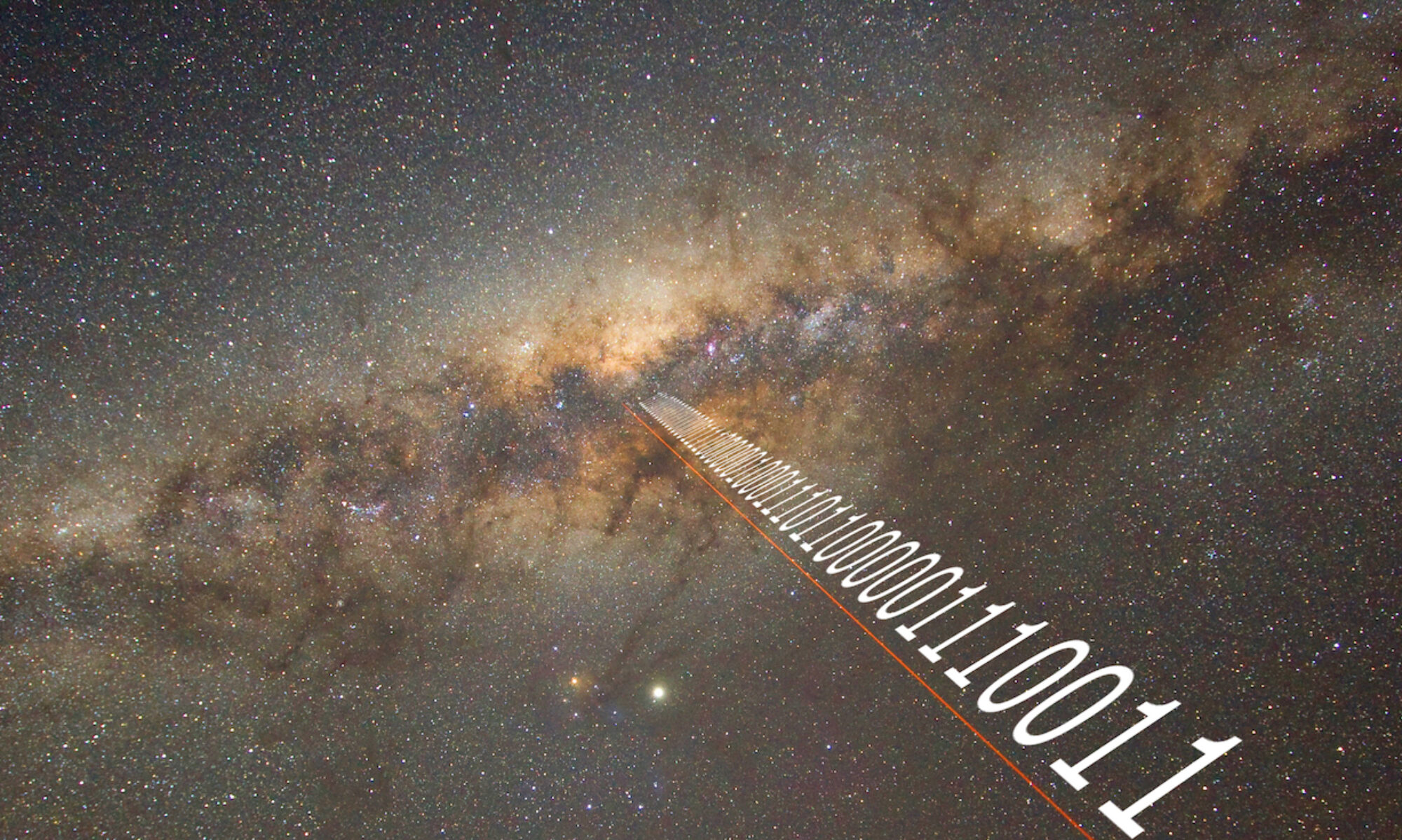
Every week, we answer a question from our February 16, 2023 launch event Q&A session or from a Zooniverse participant. This week’s questions comes from Alejo Weyh: How much background noise is Earth sending out there? Do they have a better chance of finding our radio signals or do we have a better chance of finding them?
This week, we address an important question: do other civilizations know that we are here? It is not unusual to hear astronomers answer this question in the affirmative. However, apart from rather improbable conditions, the answer is almost certainly “No.” We have transmitted radio signals over distances approaching an Earth radius for approximately 120 years, and radio waves propagate at the speed of light. Our radio transmissions have reached a distance of 120 light years, illuminating a spherical bubble with a volume of 7.2 million cubic light years. Although this number may sound large, it represents only 1 millionth (0.0001%) of the volume of the Galaxy. The probability that another civilization resides in this tiny bubble is extraordinarily small, unless there are millions of civilizations in the Milky Way, which seems unlikely. Could another civilization have traveled to our local bubble and detected our transmissions? Perhaps, but even in that improbable situation, news of our existence would be confined to our bubble. Could another civilization further away have detected biosignatures in our atmosphere? Perhaps, but in that case they would not know whether terrestrial lifeforms are technological or even intelligent. The laws of physics lead us to conclude that no one knows about the existence of a technological civilization on Earth except for the improbable civilizations that would reside in our tiny, local bubble.
We answer this week’s second question unequivocally: we have a much better chance at detecting other technological civilizations than the other way around, a fact that motivates UCLA SETI searches. It is reasonable to assume that other civilizations have been technological much longer than we have been (see our webinar), perhaps preceding us by thousands or millions of years. Their detectability bubbles are therefore considerably greater than ours.
Electromagnetically yours,
UCLA SETI
